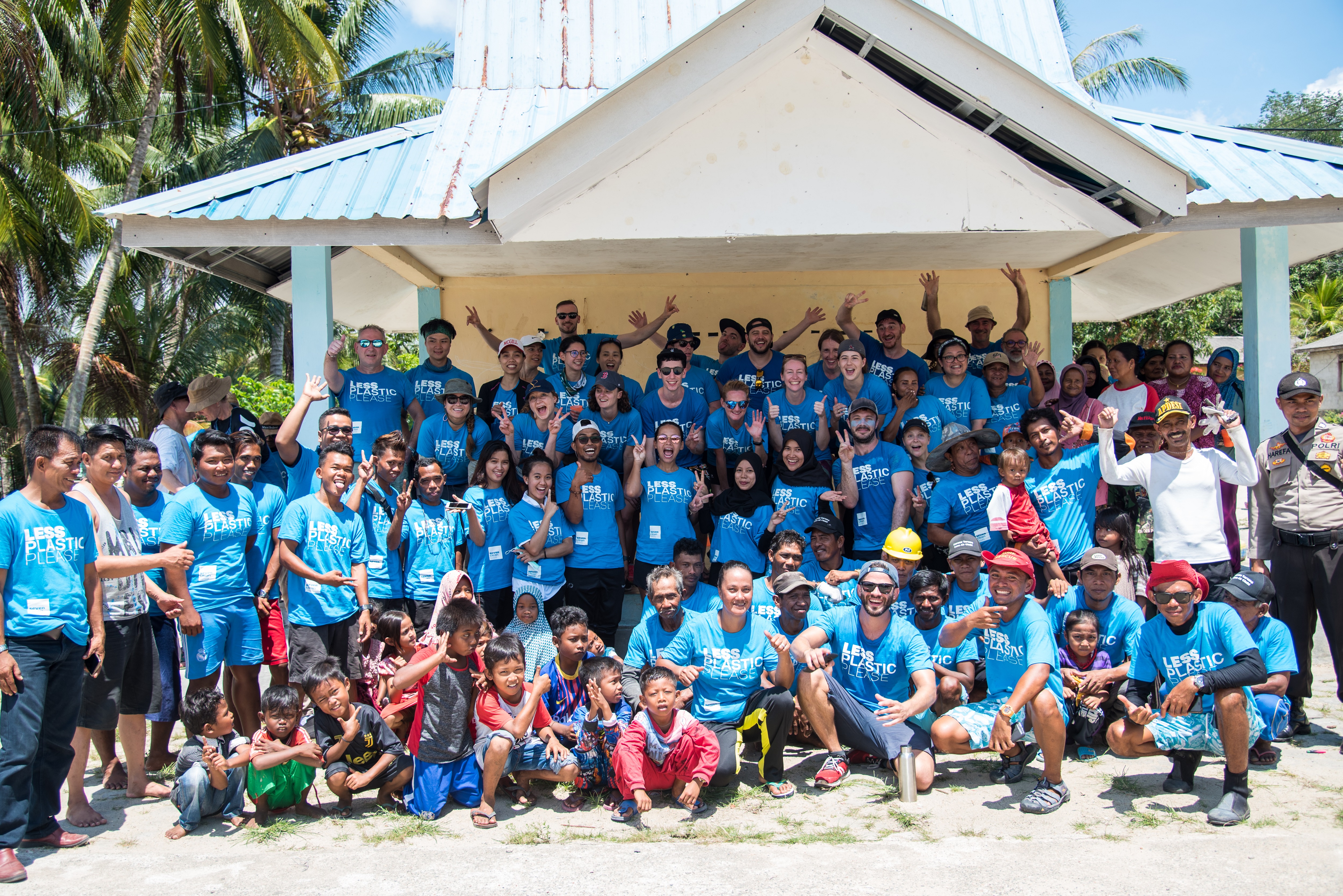An Interview with Tom Peacock-Nazil, Co-founder of Seven Clean Seas

This article was originally published in Orient Magazine, April 2020.
In this article, Sarah Cragg, Chairperson of our Sustainability Committee sits down with Tom Peacock-Nazil, Co-founder of Seven Clean Seas, to discuss plastic consumption, pollution and Seven Clean Seas’ dedication to removing plastic pollution in the marine environment.
What is Seven Clean Seas and what is its mission?
Seven Clean Seas is an ocean clean up organisation dedicated to removing plastic pollution in the marine environment. We prevent plastic from entering the natural environment and educate the public around responsible plastic consumption.
Why did you start it?
After living in Singapore for seven years, my wife, Pamela Correia, and I have been lucky enough to travel extensively throughout the region. Plastic pollution was evident everywhere we went, but a particular trip to an island in the South Andaman Sea really shocked us into action. The beach went from pristine to plastic nightmare overnight. We were so shocked that we decided to organise some educational clean up events upon our return to Singapore and Seven Clear Seas was born.
How do you work with businesses?
We have come a long way from our early community events and Seven Clean Seas is now the world's first Ocean Plastic Offsetting solution. This means we help responsible corporations to first; reduce their plastic use and then second; to offset any necessary plastic consumption so they can achieve plastic neutrality. We are also developing an innovative River Clean Up system which will be available for corporations to sponsor from 2021. Lastly, we are very busy hosting corporate social responsibility (CSR) beach clean-up events for our clients and partners to volunteer in Singapore, Malaysia and Indonesia.
Tell us more about plastic neutrality and what this means?
Plastic neutrality is when a company offsets their necessary plastic footprint whilst eliminating their unnecessary plastic footprint altogether. They can offset this by commissioning Seven Clean Seas to remove that same quantity of plastic from the marine environment on their behalf in any given year, making themselves ‘plastic neutral’.
There are lots of myths out there about what’s good and what’s bad – are there any myths you would like to bust?
Totally. Although I am on a mission to rid the world's oceans from plastic pollution, it doesn’t necessarily mean all plastic is bad. It’s a super material and invaluable in so many use cases, take the medical industry for example. It is however our (consumers and businesses) interaction with it, particularly end-of-life plastics which is the issue. We all need to use plastic responsibly; recycle everything we use and to avoid using it if not necessary.
How can individuals and businesses make a difference?
Individuals have the power to make a difference through what their purchasing power. If people boycott companies who do not act responsibly, then the businesses will soon react in order to ensure their sales go back up. We think businesses need to view plastic usage as an emission, just like carbon. Internal efforts should be made to remove unnecessary usage and offset what cannot be eliminated. Also, designing packaging which is 100% recyclable using common recycling technologies and trying to use 100% recycled material wherever possible would be invaluable.
There is a lot of discussion about the problems with recycling, how important is recycling in Singapore?
Reaching a point where all plastic gets recycled is the goal, but unfortunately, it’s not that simple. Only a few types of plastics can be recycled, and even many of those don't get recycled for various reasons, it could be because of its colour, design or contamination. In Singapore, contamination is a huge issue and you only need to look in a recycle bin to understand why. Often food waste, liquids or biodegradables will be put into the recycle bins and then the entire contents become 'contaminated' and unrecyclable. We need education around how to recycle, as well as a real investment into collection and recycling infrastructure if we want to see our national recycling rates increase from 4%, as it was in 2019.
What are you most proud of?
Seven Clean Seas has removed over 54,000kg of ocean plastic pollution since we started and that is something I’m infinitely proud of. I’m excited to add many more zeros onto the end of that with the support from our fantastic client base.
How can Seven Clean Seas help businesses?
Seven Clean Seas can host educational sessions for your staff, take you to experience plastic pollution first hand and organise volunteering beach clean ups. We can also help businesses tackle their plastic consumption through proactive reduction strategies and offsetting. We can help you be an ocean friendly, plastic neutral business. If you would like more information, please contact me at tom@sevencleanseas.com and I would be happy to schedule a meeting.
